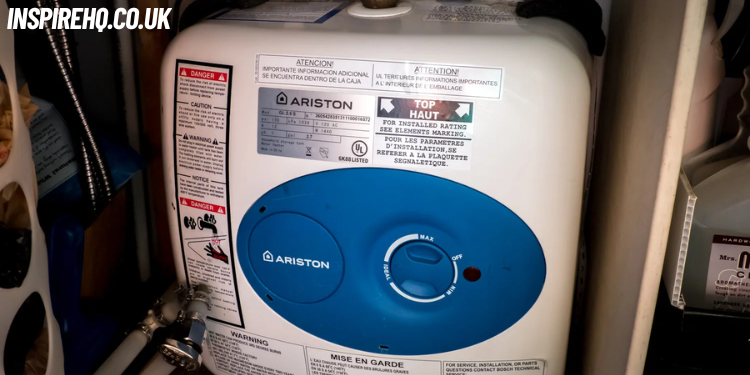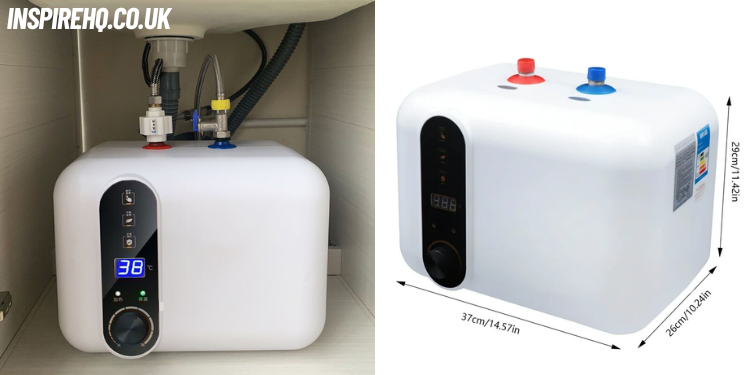When preparing for your next road trip or camping adventure in your RV, one of the most important things to consider is how you’ll enjoy the comforts of home, such as hot water for showering, washing dishes, and other daily activities. An RV electric water heater can be a great choice, offering ease of use, energy efficiency, and a reliable source of hot water while you’re on the road. But with so many models and types on the market, how do you choose the best RV electric water heater for your needs? In this guide, we’ll walk you through everything you need to know to choose the best RV electric water heater, including the different types of heaters, factors to consider, and some of the top brands available. Let’s dive in!
Understanding RV Electric Water Heaters
At its core, an RV electric water heater uses a 120V electrical system to heat water stored in a tank or on demand, providing you with hot water whenever you need it. These heaters are designed to be compact, efficient, and perfect for the limited space and electrical power available in an RV.
Types of RV Electric Water Heaters
There are generally three main types of RV electric water heaters to choose from, each offering unique features:
- Standard Tank Models: These are the traditional water heaters that store hot water in a tank. They typically range in size from 6 to 12 gallons and use an electrical element to keep the water hot. If you have a larger RV or several people traveling with you, a tank-style model might be a great option.
- Tankless (On-Demand) Models: Tankless water heaters are a more modern solution that heats water as you need it. These units don’t have a tank, and water is heated instantly as it flows through the system. They are energy-efficient, as they don’t waste energy keeping a tank of water hot, but they may require a higher electrical capacity to function effectively.
- Dual-Fuel Models (Gas/Electric): These models offer the best of both worlds. You can choose to use either electricity or gas to heat your water, depending on what’s available. If you’re boondocking or dry camping and have limited access to electricity, you can switch to gas to keep your water heated without draining your battery.
Factors to Consider When Choosing an RV Electric Water Heater
Choosing the best RV electric water heater comes down to several important factors. Here are the main things you should consider before making your purchase:
Size and Capacity
The size and capacity of the water heater are crucial to ensure it fits both your needs and your RV’s available space. Most RV water heaters range in size from 6 to 12 gallons, with 6-gallon models being more common for smaller RVs. However, if you have a large family or plan to spend extended periods in your RV, you might want to opt for a larger capacity.
When choosing the right size, consider how many people will be using the RV, how often you need hot water, and how much space you have for installation. Remember that a larger tank will take longer to heat up and consume more energy.
Power Consumption and Electrical Needs
Electric water heaters can use a significant amount of power, especially when running a large tank or tankless model. Before purchasing an RV electric water heater, check your RV’s electrical system to ensure it can handle the power requirements of the heater. Typically, RV electric water heaters require a 120V power source, and tankless units may require higher amperage than tank models.
Space and Installation
Space is often limited in RVs, and you’ll need to ensure that your electric water heater will fit into your designated space. Standard tank models are larger and might take up more room, while tankless models are compact and can be mounted in smaller areas.
Additionally, installation can be tricky depending on the model you choose. If you’re comfortable with DIY projects, some electric water heaters are easy to install yourself. However, if you prefer professional assistance or are concerned about compatibility, you might want to seek the help of a qualified technician.
Heating Speed
How quickly your water heater heats up water is an important consideration, especially if you’re traveling with several people or need hot water on demand. Tankless water heaters typically heat water instantly, whereas standard tank heaters take longer to heat the water, depending on the size of the tank. If you have a large family or are frequently using hot water, a tankless model might be the best option for its faster heating time.
Durability and Maintenance
When investing in an RV water heater, durability is essential. Look for models made from corrosion-resistant materials such as stainless steel or glass-lined tanks. These materials can increase the lifespan of the water heater, especially in humid or harsh conditions.
Regular maintenance is also necessary to keep your water heater running efficiently. This includes flushing the tank to remove sediment buildup, replacing the anode rod to prevent corrosion, and checking the heating element for signs of wear. Some models may also require regular inspections of the pressure relief valve.
Budget
RV electric water heaters come in a wide range of prices. Tankless models tend to be more expensive initially but can save you money in the long run due to their energy efficiency. Tank models are more affordable but can consume more electricity over time. Consider your budget and long-term energy consumption when making your decision.
Pros and Cons of RV Electric Water Heaters
Before committing to an RV electric water heater, it’s important to weigh the pros and cons of these units:
Advantages
- Convenience: Electric water heaters are incredibly easy to use. You don’t have to worry about pilot lights, gas lines, or fuel levels. Simply turn on the heater and wait for hot water.
- Consistent Temperature: Electric models are known for providing consistent hot water. Once set, they maintain the desired temperature without fluctuating.
- Safety: Since they don’t rely on gas combustion, electric heaters don’t produce harmful fumes like carbon monoxide, making them a safer option for your RV.
- Low Maintenance: Electric water heaters tend to have fewer components compared to gas heaters, meaning they require less maintenance over time.
Disadvantages
- Power Consumption: Electric water heaters can use a lot of power, especially tankless models. If you’re boondocking without shore power, this can quickly drain your battery unless you have a generator.
- Dependence on Shore Power: Without a power source, electric water heaters won’t work. This makes them less ideal for long-term off-grid camping unless you have a powerful generator or solar system.
Top RV Electric Water Heater Brands to Consider
Several well-known brands offer high-quality RV electric water heaters. Here are a few of the best options:
Furrion
Furrion is known for producing durable, high-performance RV products, including electric water heaters. Their models are compact, efficient, and designed for easy installation. The Furrion water heaters feature high-quality materials and energy-efficient technology, making them an excellent choice for RV owners.
Suburban
Suburban is a trusted name in the RV industry, offering a range of water heaters, including electric and dual-fuel models. Their products are known for their reliability and affordability, with models that feature direct spark ignition for easy operation.
Atwood
Atwood water heaters are popular for their dual-fuel options, allowing you to use either gas or electric to heat your water. These models are known for their reliability and ease of use, and they’re perfect for RVs that travel between campsites with access to both power and gas.
Camplux
Camplux is a budget-friendly option for those looking for affordable electric water heaters. Their tankless models are perfect for smaller RVs or short trips, offering energy-efficient heating without taking up much space.

How to Install an RV Electric Water Heater
Installing an RV electric water heater requires some technical knowledge, but it can be done with the right tools and guidance. Follow these steps:
- Turn off all electrical power to your RV and disconnect the old water heater if you’re replacing one.
- Install the new water heater according to the manufacturer’s instructions, ensuring it’s securely mounted in place.
- Connect the electrical wiring to the water heater and ensure all electrical connections are tight and properly insulated.
- Test the system by turning on the water heater and checking for leaks or issues with heating.
If you’re unsure about the installation process, consider seeking professional help to ensure everything is done safely and correctly.
Maintenance Tips for Your RV Electric Water Heater
Maintaining your RV electric water heater is crucial for its longevity and efficiency. Here are some simple tips to keep your unit running smoothly:
- Flush the Tank Regularly: Sediment buildup can reduce efficiency and damage the tank. Flush the tank at least once a year to remove any debris.
- Replace the Anode Rod: The anode rod helps prevent corrosion in the tank. Replace it every year or as needed to keep your heater in top condition.
- Check the Heating Element: Inspect the heating element for signs of wear or damage. A malfunctioning element will reduce the heater’s performance.
- Test the Pressure Relief Valve: This valve ensures your tank doesn’t build up too much pressure. Test it monthly to ensure it’s functioning properly.
Conclusion
Choosing the best RV electric water heater for your next adventure requires careful consideration of your specific needs, the size of your RV, and your power requirements. Whether you opt for a traditional tank model, a tankless on-demand system, or a versatile dual-fuel unit, understanding the key factors like size, power, installation, and maintenance will help you make the best decision.
By selecting the right RV electric water heater, you’ll enjoy reliable hot water during your travels, enhancing your comfort and ensuring a more enjoyable camping experience.
FAQs:
1. How do RV electric water heaters work?
RV electric water heaters use a 120V electrical system to heat water inside a tank or on demand. The heater’s element converts electricity into heat, providing consistent hot water without the need for gas or a pilot light.
2. What size RV electric water heater do I need?
The size you need depends on the number of people using the RV and how often you need hot water. Smaller RVs may need a 6-gallon tank, while larger units may require a 10 or 12-gallon tank for more extensive use.
3. Can I use an RV electric water heater off-grid?
While electric water heaters require shore power to operate, you can use a generator or a solar-powered system to run them off-grid. However, ensure your power system can handle the water heater’s electrical demands.
4. Are tankless RV electric water heaters more efficient?
Yes, tankless models are more energy-efficient since they heat water on demand rather than constantly keeping a tank of water hot. However, they may require more power and have slower heating times depending on the model.
5. How do I maintain my RV electric water heater?
Routine maintenance includes flushing the tank annually to remove sediment, replacing the anode rod to prevent corrosion, and inspecting the heating element and pressure relief valve to ensure optimal performance.
Also Read: Black Beauty Tomato: A Stunning Heirloom with Rich Flavor and Color










